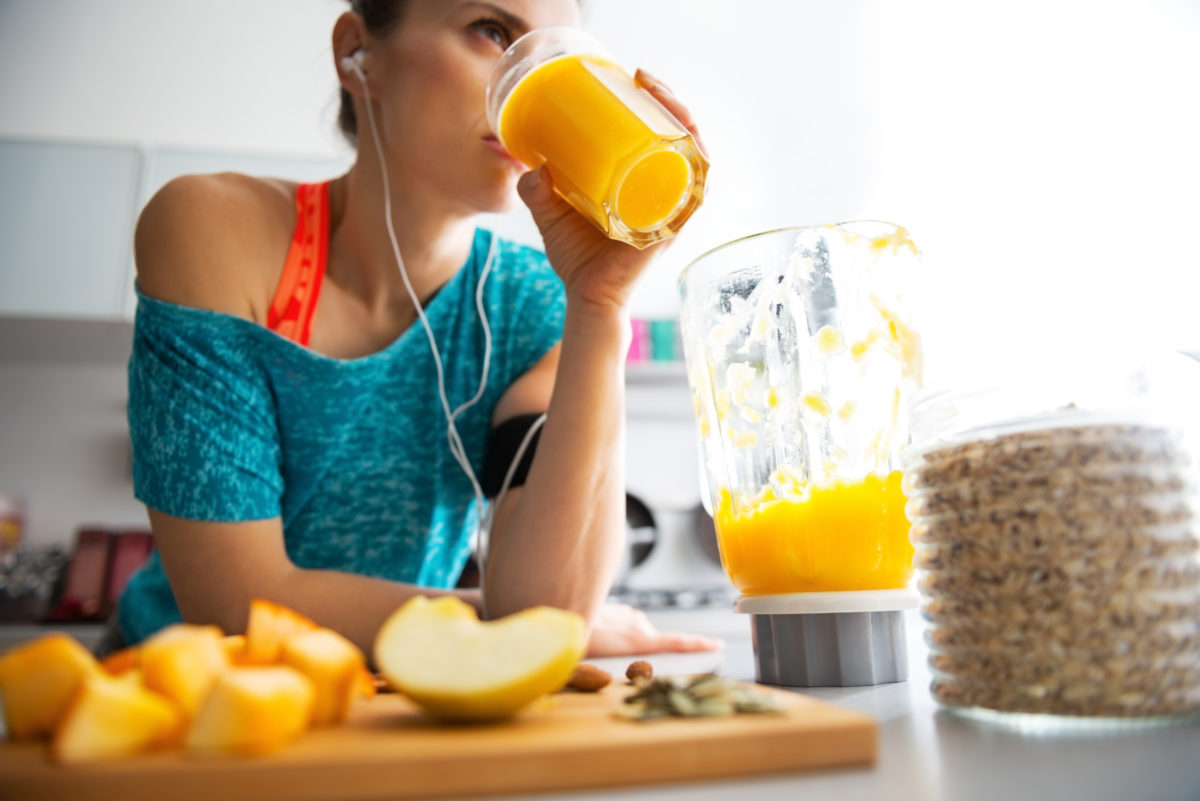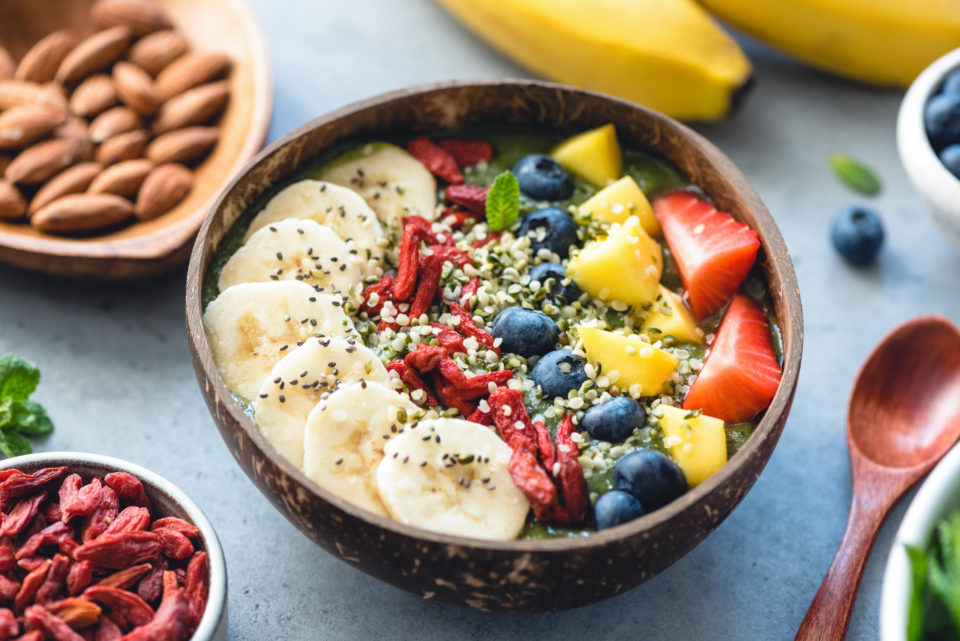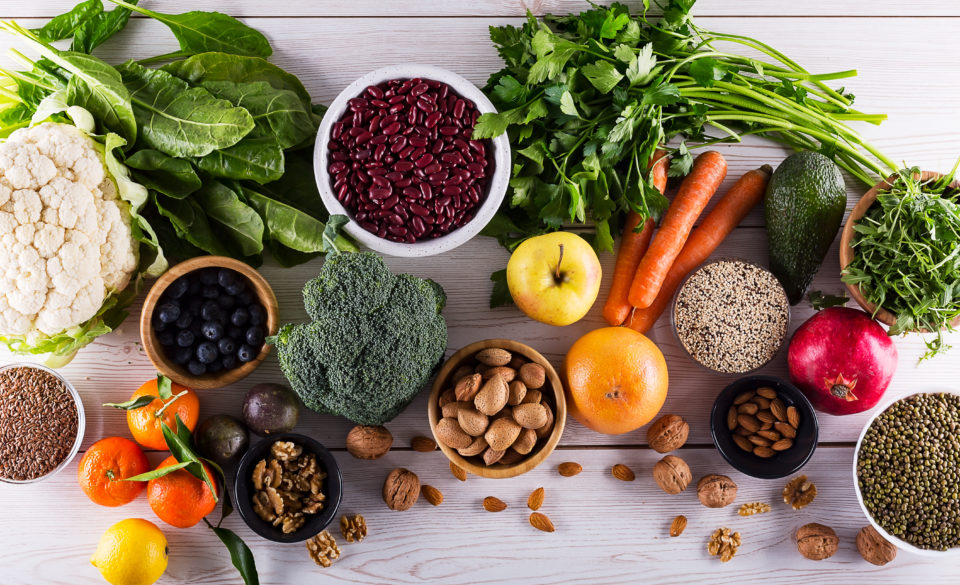
Do you try to get enough vitamins and minerals in your diet? That’s great, because taking in sufficient vitamins and minerals is important, especially for athletes. We know why that is and can also tell you which vitamins and minerals are vital for your energy reserves and how you can integrate these into your diet.
Do athletes need more vitamins and minerals?
Yes. Definitely. When you exercise, you sweat, which means that your body loses fluids and important minerals. Vitamins are also vital for athletes as they are involved in a number of important processes, including energy metabolism. It’s therefore crucial that you get enough vitamins and minerals to ensure that your muscles function during strenuous sport sessions and can recover properly afterwards.
What are vitamins and why are they so important?

Vitamins are organic compounds that our bodies need to survive. They are essential nutrients that are not produced by our bodies so we have to take them in through our food. Vitamins are divided into fat-soluble and water-soluble vitamins. Water-soluble vitamins are the ones we have to consume regularly as they are not stored for long in our bodies. In contrast, fat-soluble vitamins can be stored longer by the body. The following is a list of the most important vitamins together with a description of what they do in our bodies and what food you can find them in:
| Vitamin | Function in your body | Can be found in these foods |
| Vitamin A (fat soluble) | For your skin and eyes; stimulates cell growth and subsequently wound healing | Full-fat milk, spinach and red bell peppers
|
| Vitamin B1 (water soluble) | Supports the nervous system and carbohydrate metabolism | Pork, peas, whole-grain products |
| Vitamin B2 (water soluble) | Plays a role in carbohydrate, protein and fat metabolism | Dairy products, cheese, meat, fish, broccoli |
| Vitamin B3 (water soluble) | Important for sleep, cellular respiration and heart function | Meat, eggs, leafy green vegetables |
| Vitamin B5 (water soluble) | Important for breaking down fats and preventing hair loss | Sunflower seeds, mushrooms |
| Vitamin B6 (water soluble) | Strengthening the nervous system and immune system, protein coagulation | Meat, milk, avocado, bananas, potatoes, walnuts |
| Vitamin B7 (water soluble) | Important for skin and hair as well as carbohydrate and fat metabolism | Yeast, liver, egg yolk, lentils |
| Vitamin B9 (water soluble) | Influences nerves, blood clotting and gastrointestinal activities | Oranges, lettuce, cabbage, spinach, whole-grain products |
| Vitamin B12 (water soluble) | Supports various metabolic processes | Meat, liver, egg, fish, dairy products |
| Vitamin C (water soluble) | Helps the body absorb iron and combats free radicals | Bell peppers, kale, broccoli, citrus fruits |
| Vitamin D (fat soluble) | Helps regulate calcium levels | Fish (eel, salmon)
TIP: The body can create vitamin D with the help of UV rays |
| Vitamin E (fat soluble) | Helps combat free radicals | Nuts, vegetable oils, butter, eggs |
| Vitamin K (fat soluble) | Plays a role in blood clotting | Spinach, cabbage, green lettuce |
As you can see, these vitamins play important roles in our bodies. So you should try to incorporate them into your daily diet wherever possible.
Important vitamins for athletes
As we mentioned above, a number of vitamins are even more important for you as an athlete. The following three are the most important ones to include in your diet:
Vitamin B1
Having enough energy is vital when exercising. Your carbohydrate metabolism is responsible for this. Vitamin B1 provides the energy for this metabolic process. Vitamin B1 is also important for your cardiac muscle, which is put under more strain when you exercise. The more you exercise, the more Vitamin B1 you need.
Vitamin B6
Your carbohydrate, protein and fat metabolism processes rely on Vitamin B6. If you do lots of weight training, then this vitamin is particularly important for you. During weight training, you metabolise fats and proteins as this gives you the energy you need and also helps you build up muscle.
Vitamin D
You can absorb Vitamin D either through food or by exposure to the right levels of sunlight. It supports muscle function and bone health, which makes it important to you as an athlete. After all, when you exercise, your muscles and bones are subject to completely different forces than in day-to-day life.
Minerals and their importance

When we talk about minerals, we’re actually referring to essential nutrients that we have to take in through our food because– just like vitamins – our bodies cannot create them on their own. Minerals are split into two groups: Major minerals and trace elements. Trace elements account for less than 50 mg per kilogram of body weight whereas major minerals are present in concentrations above 50 mg per kilogram of body weight. In the following table, we list the different minerals, explain what they do in our bodies and what foods you can eat to make sure you increase your intake:
| Mineral | Function in your body | Can be found in these foods |
| Calcium (major mineral) | Important for bone stability; nervous and muscular systems | Cheeses such as Emmental and Parmesan, sesame, kale |
| Potassium (major mineral) | Effects blood pressure and muscle function | Nuts, potatoes, vegetables, whole-grain products |
| Magnesium (major mineral) | Important for bones, teeth and muscles | Pumpkin seeds, pulses, chickpeas, grains |
| Sodium (major mineral) | Important for electrolyte and water levels in the body | Salt |
| Iron (trace element) | Supports the immune system and blood formation | Spinach, oats, millet, chanterelles, lentils |
| Zink (trace element) | Supports the immune system | Fish |
Minerals for athletes
All of the minerals listed here should be an important part of our diets. If you’re an athlete, however, you should place particular focus on the following four minerals:
Magnesium
For every drop of sweat that you produce when exercising, you lose important magnesium that your body uses for protein synthesis or to support your bone and muscle function. So foods that are rich in magnesium should definitely be on the menu. These include whole-grain products, milk and fish. It might also make sense to drink mineral water that contains a lot of magnesium. Lots of athletes often use food supplements to ensure they are getting sufficient amounts of magnesium.
Iron
Iron is responsible for ensuring that oxygen is carried throughout our bodies. As athletes, we know that improved oxygen supplies lead to better aerobic performance. So iron-rich food should definitely be part of your diet!
Calcium
Our bones are made of calcium. But that’s not all. This mineral also influences our nerves and blood pressure.
Potassium
Potassium is important for athletes because it regulates the supply of fluids to cells and helps transmit messages to our nerves and muscles.
Are supplements an effective alternative?
If you can’t manage to get the vitamins and minerals that are so important for athletes from your diet, food supplements may be a way to ensure your body gets everything it needs. However, we always recommend that you try and get the nutrients you need through a healthy, balanced diet!
We need a little break to regenerate and see you again in time for the beginning of spring next year ?
Image sources: shutterstock_247502347; shutterstock_1288402915; shutterstock_1661844010